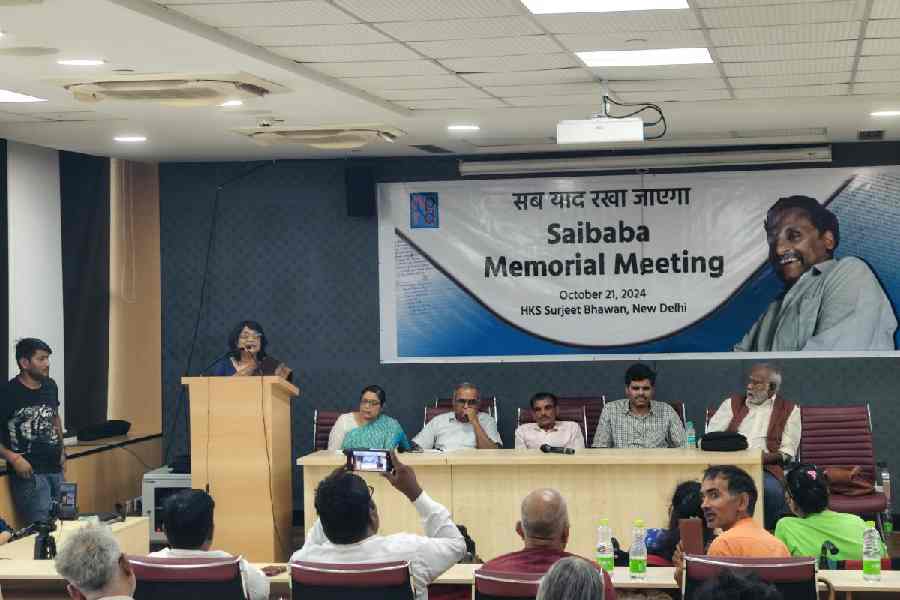A condolence meeting was held here on Monday to honour academic G.N. Saibaba, who passed away on October 13 because of post-operative complications.
Speakers at the event expressed outrage and sorrow over the alleged negligence that led to the deterioration of his health during nearly a decade of imprisonment before his acquittal this March.
Saibaba, a former assistant professor at Delhi University’s Ram Lal Anand College, was arrested in 2014. In 2017, a trial court in Maharashtra found him and five others guilty of waging war against the government and convicted them under the Unlawful Activities Prevention Act (UAPA). They were acquitted this March.
Saibaba succumbed in a Hyderabad hospital. Condolences have poured in since from all walks of life, including the French and German ambassadors to India.
At the event at the CPM’s H.K.S. Surjeet Bhavan, former Delhi University Teachers Association president Nandita Narain, who had led the campaign for Saibaba’s release, said that it was “a sad honour to pay tribute to someone I saw as a role model and beacon to society”.
Narain added: “The stones affecting his pancreas were detected in 2017 but surgery could only be done now in 2024…. I believe it is an institutional murder.”
A polio patient, Saibaba was paralysed below the waist and developed life-threatening complications in Nagpur prison, which he blamed on poor living conditions and inadequate medical treatment. He went on hunger strikes several times in protest. UN special rapporteurs had repeatedly called for his release on health grounds.
Vikas Gupta, a history professor at DU who is visually impaired, said that when the harassment of Saibaba began, “nobody came to support him”.
He added: “Even before the raids, DU decided to make Saibaba vacate his house…. No help came from the office of the chief commissioner for persons with disabilities (CCPD), partly because even though it has quasi-judicial powers it is not autonomous of the government of India.”
“The university, which is autonomous, did not come to rescue its brightest teacher. The CCPD, which is supposed to protect the rights of the disabled, did not come to the rescue. The result is institutional murder,” Gupta added.
He said that Saibaba had not been reinstated despite his acquittal, thereby denying salary benefits to his kin.
Activist Harsh Mander, veteran journalist John Dayal and academic Amita Dhanda also spoke at the meeting organised by the National Platform for the Rights of the Disabled at the same venue where Saibaba had held a media conference after his release.
Several speakers remembered Saibaba for his steadfast activism for Chhattisgarh tribals opposing forcible land acquisition for mining — a crusade that led to the assistant professor being falsely convicted of being associated with the banned CPI (Maoist).










